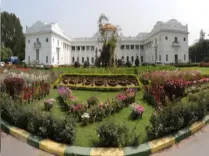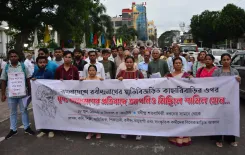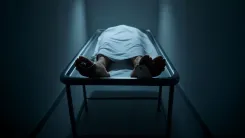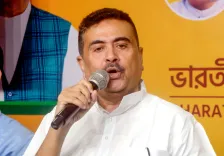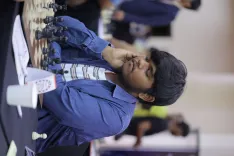Should By-Polls Be Held Every Year? Himachal CM Discusses ONOE with JPC
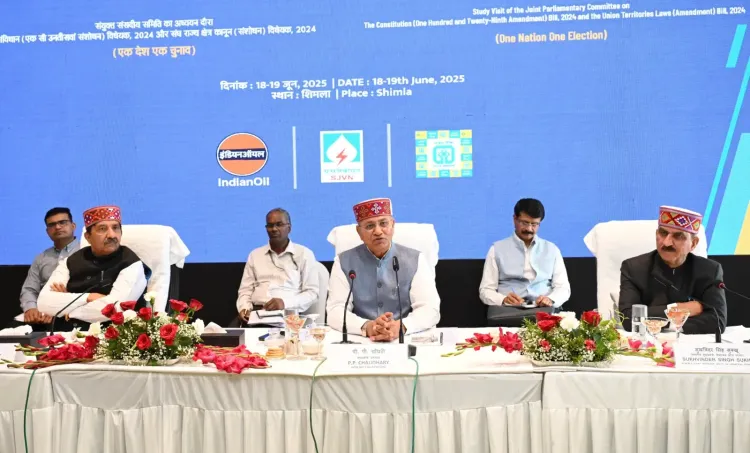
Synopsis
Key Takeaways
- Himachal CM Sukhvinder Sukhu raises concerns over the ONOE proposal.
- Suggestions include annual by-elections to uphold democracy.
- The Joint Parliamentary Committee engaged in constructive discussions.
- BJP state chief Rajiv Bindal reported significant support for electoral reform.
- Simultaneous elections could enhance efficiency and reduce costs.
Shimla, June 19 (NationPress) Raising concerns regarding the initiative of ‘One Nation, One Election’, Himachal Pradesh's Chief Minister and Congress leader Sukhvinder Sukhu articulated on Thursday that the party stands against the Bill. Nevertheless, he mentioned that they have offered several suggestions to the committee aimed at bolstering the nation’s democratic framework.
“We have proposed the inclusion of a provision for conducting by-elections annually to preserve democratic integrity,” the Chief Minister informed the press following his meeting with the visiting Joint Parliamentary Committee (JPC). This committee is engaged in the deliberation of the Constitution (One Hundred and Twenty-Ninth Amendment) Bill, 2024 and the Union Territories Laws (Amendment) Bill, 2024, which are part of the One Nation One Election (ONOE) initiative.
The committee, led by P.P. Choudhary, was greeted warmly by the Chief Minister, who presented traditional Himachali caps and shawls to the committee members. During the discussions, Chief Minister Sukhu and Deputy Chief Minister Mukesh Agnihotri shared the government’s perspective. The meeting also saw participation from Anurag Thakur, the Member of Parliament from Hamirpur.
A delegation from the state BJP, headed by state chief Rajiv Bindal, also met with the committee, reporting that 1,287 proposals in the state supported the electoral process.
Bindal recalled that in 2010, a private member's resolution was passed in the Himachal Assembly on April 8, advocating for this cause during Chief Minister Prem Kumar Dhumal’s administration.
“It is our firm belief that elections for the parliamentary, assembly, local urban bodies, and Panchayati Raj Institutions were held simultaneously from the inception of the Constitution until the 1970s,” he stated.
“However, due to changing circumstances, particularly with the Emergency imposed in 1975, the timing of elections transitioned, leading to a disruption where elections now occur frequently throughout the year. Elections are held in two to three states at different intervals, and local body elections also occur at varying times. This situation significantly hampers the ongoing work of the government,” Bindal elaborated.
He emphasized that conducting elections for the Lok Sabha, Vidhan Sabha, local bodies, and Panchayati Raj simultaneously across the nation would result in substantial cost savings.
“The numerous individuals involved in the electoral process would also conserve their workforce. Furthermore, the imposition of the election code of conduct halts developmental activities, affecting important decisions due to its repeated enforcement. Hence, the amendments proposed under One Nation, One Election are crucial for accelerating India’s progress,” he remarked.
He noted that the state BJP unit established its own team, gathering around 1,500 proposals from Panchayati Raj Institutions and local bodies endorsing ‘One Nation, One Election’.

